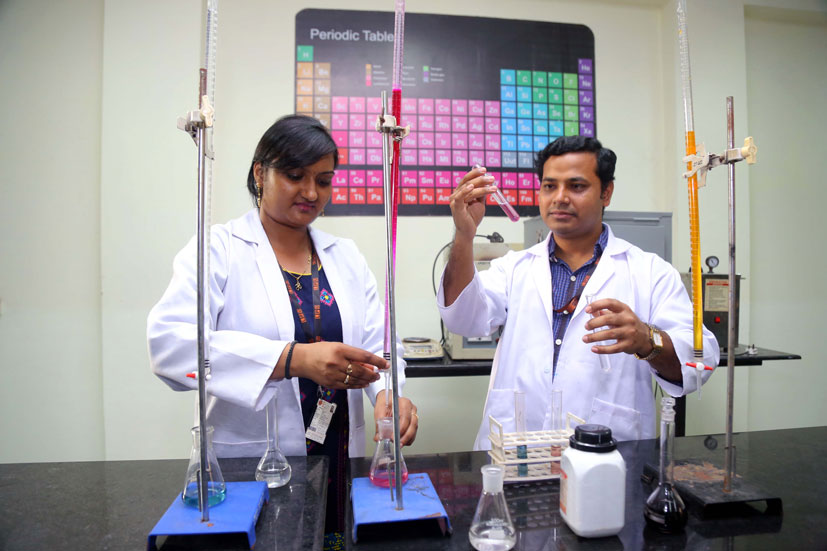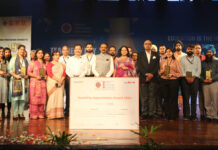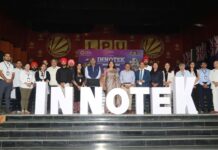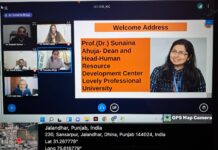Continuing with society needed research and development work in diverse fields; now scientists at Lovely Professional University have filed a patent for desalination of ‘Sea-water’ into ‘Drinking water’. This invention is to solve out the problem of drinking water across the world in a very simple, eco-friendly and economical manner. LPU team of scientists led by Assistant Professor Dr Tanay Pramanik (Department of Chemistry), along with Dr Runjhun Tandon and research-oriented B Sc student Stanzin Lzaod have developed an entirely new and completely eco-friendly technology. In this regard, Dr Tanay and his team have already filed a patent for their invention, Patent number- 201811019564. Feeling immensely happy on the direly needed research endeavour, LPU Chancellor Mr Ashok Mittal congratulated the young team of researchers and advised them to keep up the research spirit alive.
The principal supervisor of the invention project, Dr Tanay says: “This technology does not need any chemical, any source of energy or any kind of expensive material to be used. Once when I was thinking about this project suddenly I remembered my mother’s kitchen work where she used to lessen the effect of excessive salt in her preparations by adding other foods to it. I jumped to the conclusion and set forth on the present project along with my partners. Scientifically admitting, this technology can successfully remove Sodium Chloride (NaCl, Salt) from sea water simply by using common food items, which are easily available anywhere in the world.”
Dr Tanay also informed: “The most common conventional techniques for desalination are exceedingly energy intensive, require high investment costs and are destructive to the environment in some way or the other. At a time where water scarcity is increasingly posing a fundamental threat to humankind, there is a strong need for the development of greener and sustainable desalination techniques. Such type of eco-friendly technology which can effectively remove salinity from sea water without the usage of any energy or any kind of chemicals was not known till date.”

Research team member Stanzin Lzaod, who has joined LPU coming from a far-off village in Leh was very happy on this achievement. She shared: “Studies at LPU have turned me from a simple student into a scientist. I also want to inform that the simplicity along with the easy availability of raw material used in this technology will make it possible for the common people to use this technology. Moreover, common people will be able to afford the desalination kit comfortably, as it is surprisingly inexpensive.” Dr Tanay is also very hopeful that commercialization of this technology will solve the crisis of drinking water.
In fact, ‘Water’ is indisputably the most basic and vital component of life. Although 3/4th part of the world is covered with water, yet the scarcity of drinking water is one of the most critical issues. This scarcity is due to the fact that 97.5% of the total volume of water available on the earth in the seas and oceans is salty. According to the World Health Organization, more than 2.1 billion people have no access to clean and safe drinking water. This scarcity across the globe can only be easily solved by transforming sea water into drinking water by removing salinity from salty sea water.


















